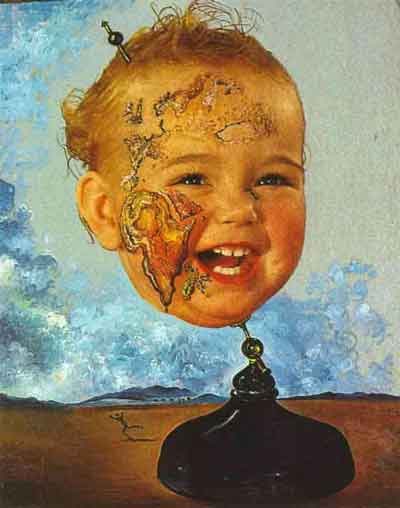Living through this perilous age has caused pessimism to be forcibly the norm, however, events the past few weeks has seemingly shifted that view around a bit. Now we have a perception that a return to ‘normal’ (whatever that was/is) might be close at hand — even polls reflect such:
Optimism is becoming the norm in the United States, as 64 percent of Americans believe the country is currently doing a good job of containing the coronavirus, a new CBS News/YouGov poll found. That figure serves as an outlier; since the pandemic began, polls have generally suggested only a minority were satisfied with the containment efforts. Just a month ago, for instance, the figure was 45 percent.
Via the same survey, 74-percent of respondents believe the economy will properly reopen and grow.
Fingers crossed, hope springs eternal:
? GOLDMAN SACHS: "We have raised our GDP forecast to reflect the latest fiscal policy news and now expect 8% growth in 2021 (Q4/Q4) and an unemployment rate of 4% at end-2021—the lowest among consensus forecasts—that falls to 3.5% in 2022 and 3.2% in 2023."
— James Pethokoukis (@JimPethokoukis) March 15, 2021
If you do feel a slight optimistic sense to the reality of life right now, there’s a reason which seems to be grounded on the work Joe Biden and company are doing with our gvernmental process — it’s more we the people and not on vengeance.
In explanation there’s a good interview at Salon this afternoon with Robert Putnam, author and currently the Malkin Research Professor of Public Policy at Harvard University.
Putnam, who is 80, says this is the best he’s felt in his lifetime — some snips:
“Given all the ups and downs of recent months — the pandemic, the economy and politics — prediction is hard, especially about the future. One can imagine many things going wrong — new virus strains, white nationalist terrorism and so on.
That said, I’m feeling optimistic about where the country is headed, not merely in the short run, but even in the long run — and the long run is my main concern.
…
Biden is proving to be just what the doctor ordered for a shaken country, focused explicitly on “we,” not “I.”
It’s not just his well-known empathy for people in pain, nor his equally well-known propensity to work across the aisle, but also his ability to adapt to changed political circumstances.
While he tried to work with Republicans on the Hill — and polls show that the public believes he was sincere in that effort — he also proved able to act on his own when the GOP party leaders blew him off.
His rising poll numbers show that he’s got most of the public, including many Republican voters, on his side.
…
“We want to make progress.” Progressives also believe that we have the right ideas about how to solve problems. However, progressives are not exclusive in how we find solutions to problems. Other people and groups may have good solutions as well.A mission statement for progressives right now would be: Think morally. That is the first part of the mission statement.
Progressives must think about how to make changes that will improve the lot of the least well-off people in society.
Progressives should also think scientifically in terms of solutions and real evidence. Do not rely on old myths or hearsay and rumors.
…
Children who grow up in social isolation do far worse than children who grow up in communities where the “we” is emphasized.
In such communities the neighbors look out for one another. “We-ness” also positively impacts education and health and social mobility.
People who grow up in areas where there is low social capital do not live as long. They also have higher mortality rates from many diseases such as diabetes, heart disease and cancer.How come America’s death rate from COVID is so much higher than almost every other country in the world? How does such a thing happen?
The country was at the lowest ebb of our “we-ness,” that sense of collective care and concern and identity.
America was at a low point in social capital, which meant that when the pandemic hit we were more vulnerable than other countries.
Trump did not cause that accidental coincidence. It was a function of low social capital and COVID happening at the same time.
…
Politically, their top priority has to be the midterm elections, and the American Rescue Plan is an excellent start.
Whatever else may affect the Democrats’ chances in 2022 — from Dr. Seuss to crises at the southern border to unexpected Supreme Court decisions to shenanigans in Trump’s Republican Party to voter suppression — the electoral fundamentals next year will be, a) whether the pandemic is in the rearview mirror and b) whether the economy is booming again.
All the experts agree that the COVID-19 rescue plan has more or less assured those two fundamentals.
I’d much rather be playing Nancy Pelosi’s hand than Mitch McConnell’s hand over the next two years.I’m focused much more on the next two decades than the next two years.
But the prospects for the long run depend on what happens in the short and medium run. I’m more optimistic today than I have ever been in my life that within my lifetime. And I’m now 80!
America may once again pivot toward a “we” society — more equal, less polarized, more altruistic, less socially fragmented and more attentive to historic, structural inequalities.”
Go read the whole intervew, pretty nifty. Does make the daylight brighter.
And onto a destination:
“25 years and my life is still
Tryin’ to get up that great big hill of hope
For a destination”
 (Illustration: Salvador Dali’s ‘Baby Map of the World,’ found here).
(Illustration: Salvador Dali’s ‘Baby Map of the World,’ found here).